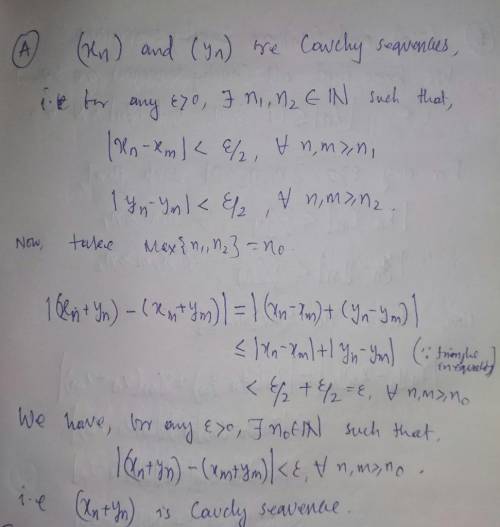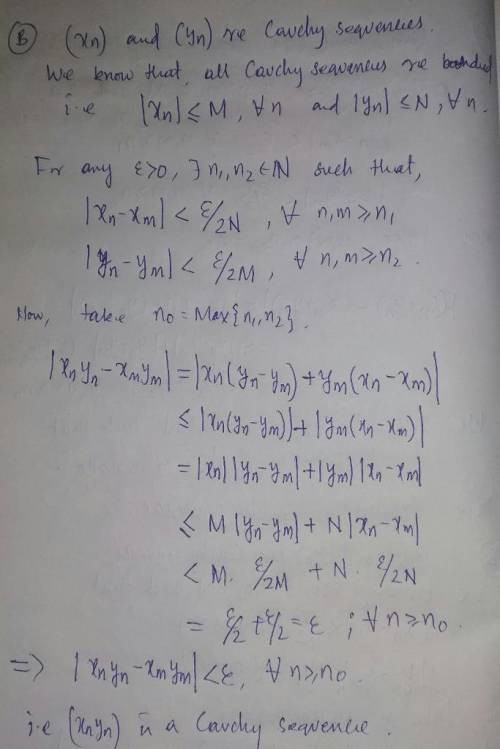
Mathematics, 06.03.2020 22:41 clashofclans17
Exercise 2.6.3. If (xn) and (yn) are Cauchy sequences, then one easy way to prove that (xn + yn) is Cauchy is to use solution the Cauchy Criterion. By Theorem 2.6.4, (xn) and (yn) must be convergent, and the Algebraic Limit Theorem then implies (xn + yn) is convergent and hence Cauchy. (a) Give a direct argument that (xn + yn) is a Cauchy sequence that does not use the Cauchy Criterion or the Algebraic Limit Theorem. (b) Do the same for the product (xn n).

Answers: 1


Another question on Mathematics


Mathematics, 21.06.2019 20:00
Given the two similar triangles, how do i find the missing length? if a=4, b=5, and b'=7.5 find a'
Answers: 1

Mathematics, 21.06.2019 22:10
Find the volume of the solid whose base is the region bounded by f(x), g(x) and the x-axis on the interval [0, 1], and whose cross-sections perpendicular to the y-axis are squares. your work must show the integral, but you may use your calculator to evaluate it. give 3 decimal places for your answe
Answers: 3

Mathematics, 21.06.2019 22:30
There were 25 students who answered to a survey about sports. four-fifths of them like football. how many students like football?
Answers: 2
You know the right answer?
Exercise 2.6.3. If (xn) and (yn) are Cauchy sequences, then one easy way to prove that (xn + yn) is...
Questions








Mathematics, 23.06.2019 15:10


Mathematics, 23.06.2019 15:10

English, 23.06.2019 15:10

English, 23.06.2019 15:10


Biology, 23.06.2019 15:10


Mathematics, 23.06.2019 15:10


Mathematics, 23.06.2019 15:10

Mathematics, 23.06.2019 15:10

Health, 23.06.2019 15:10





